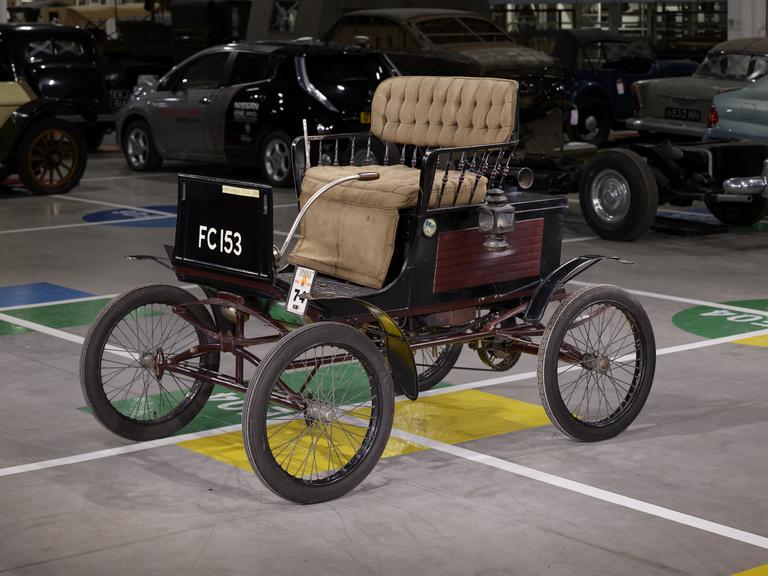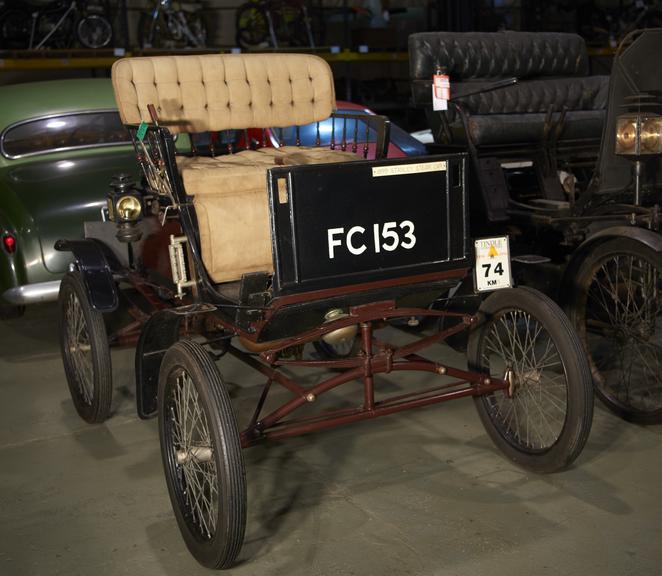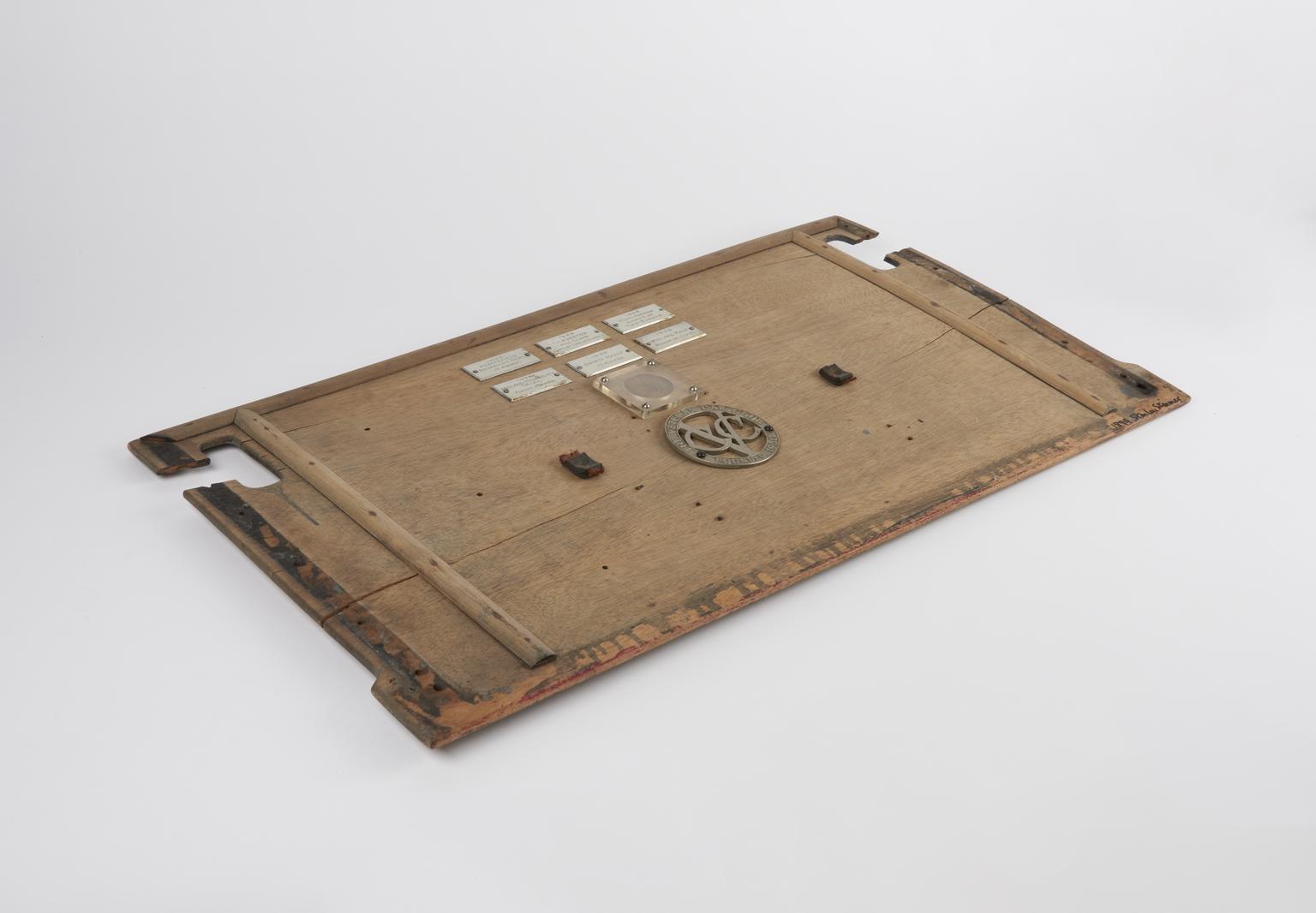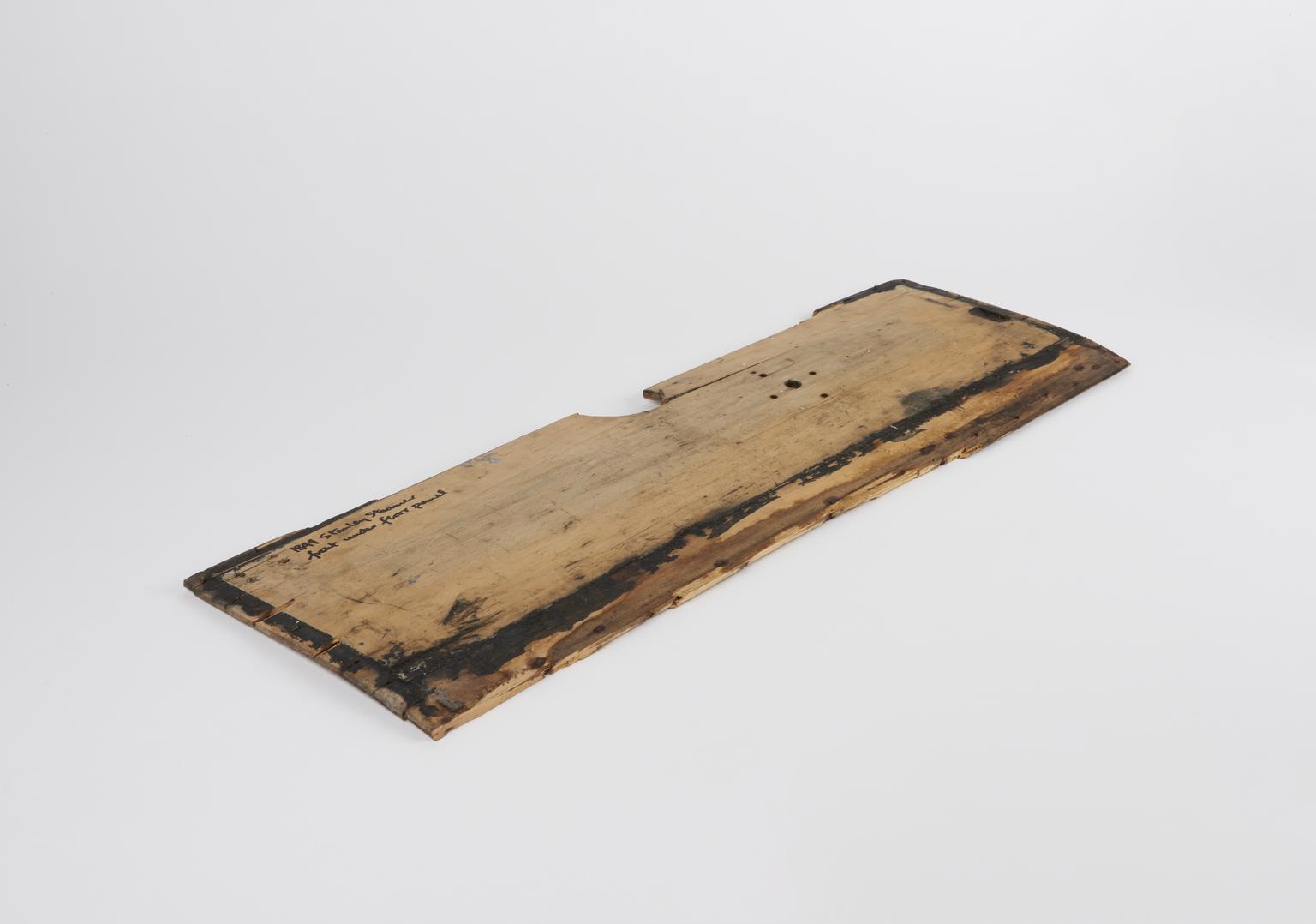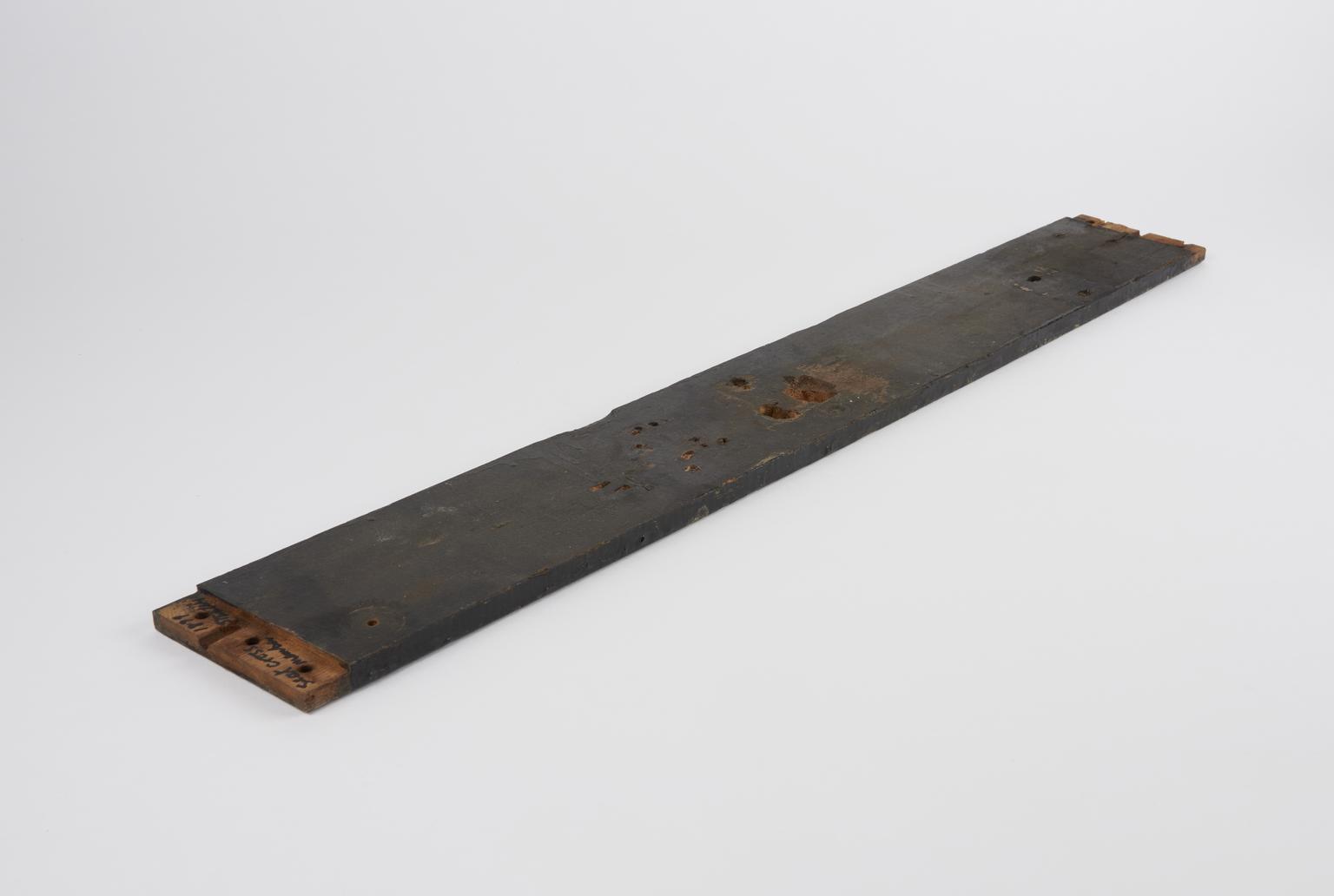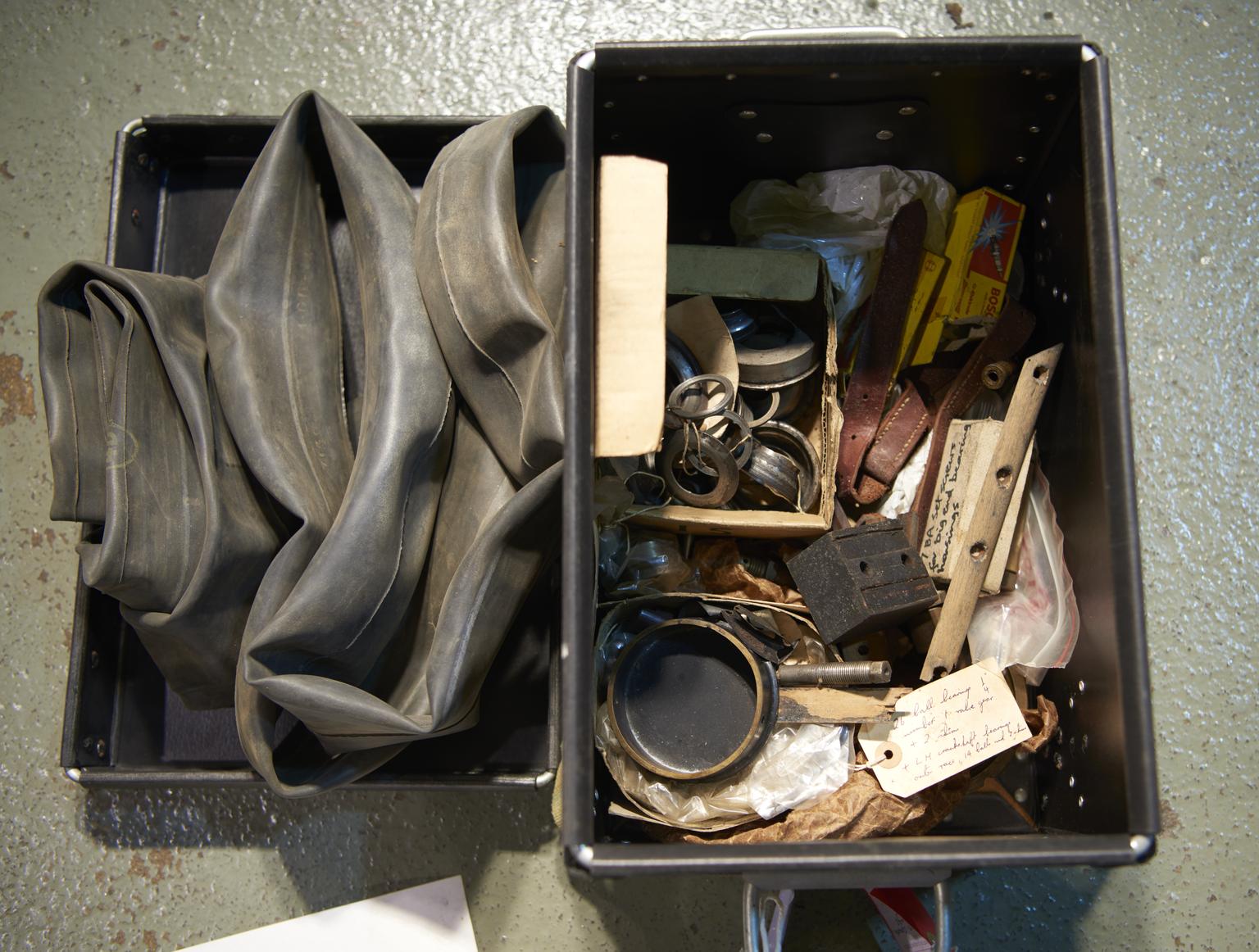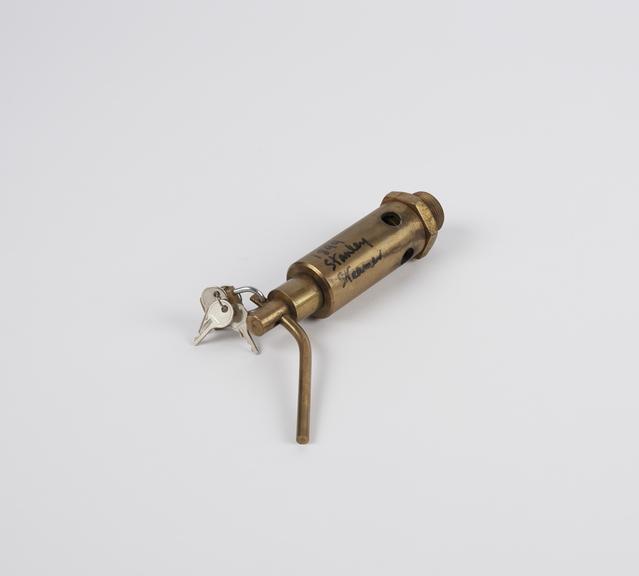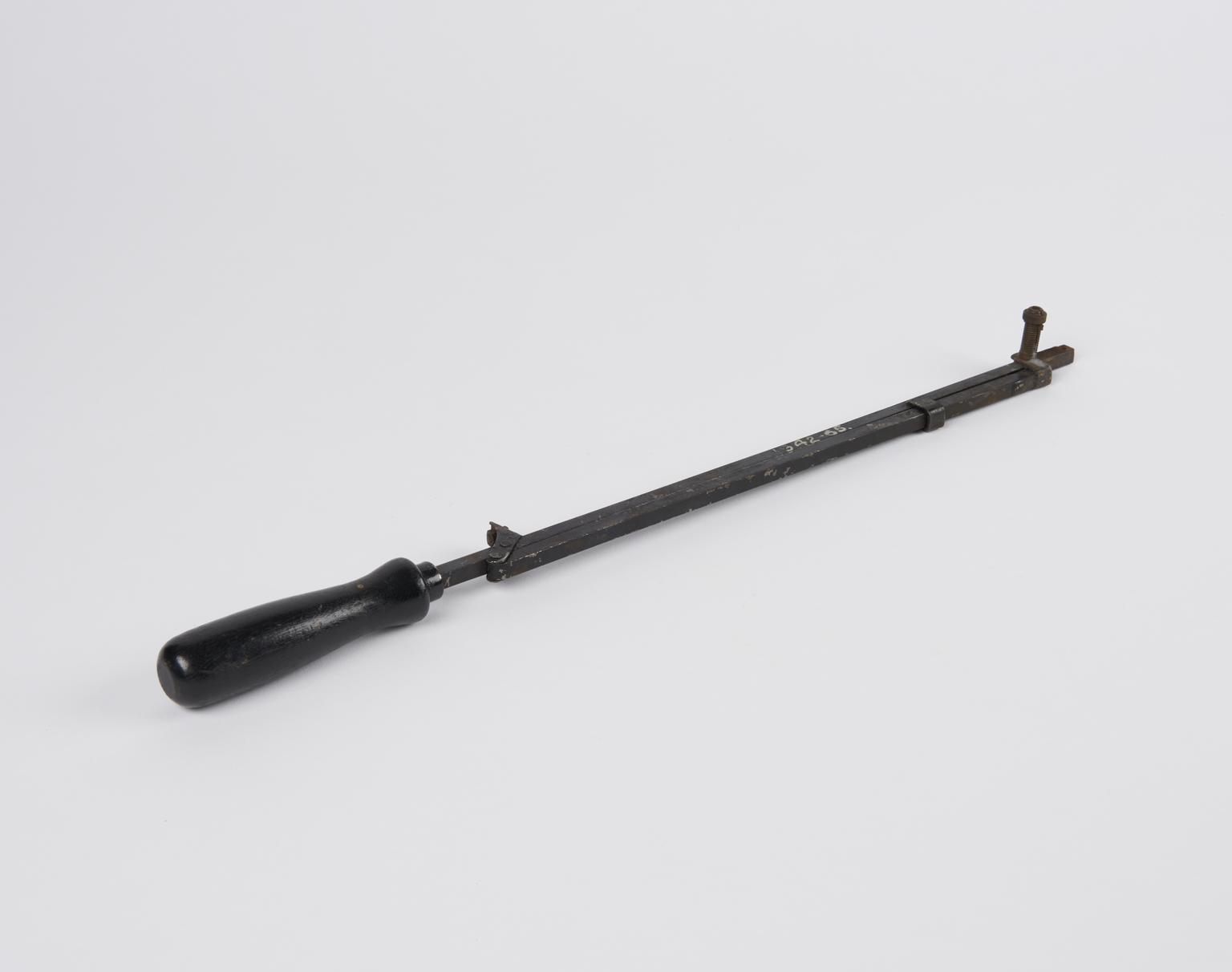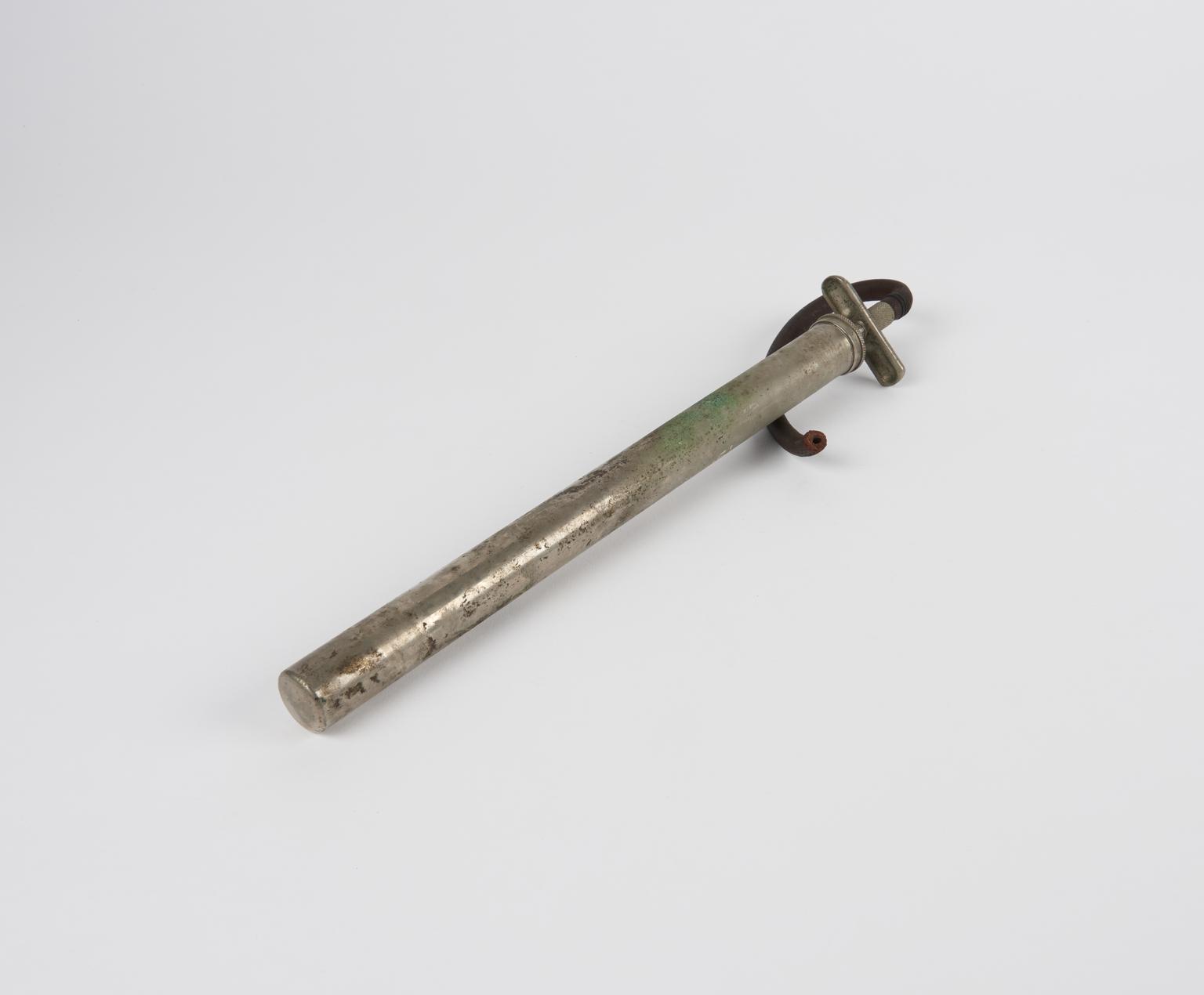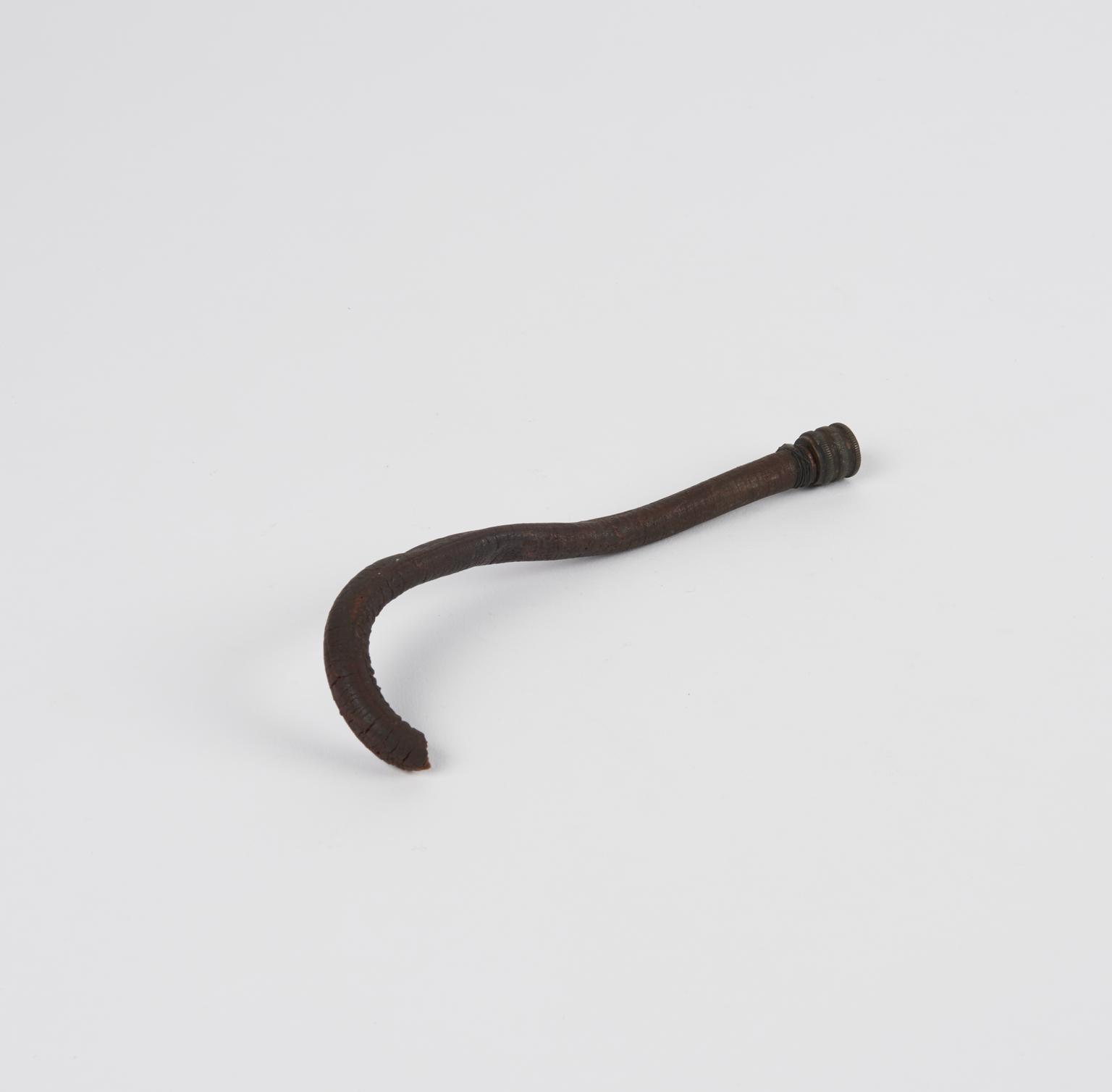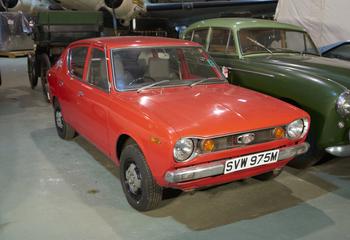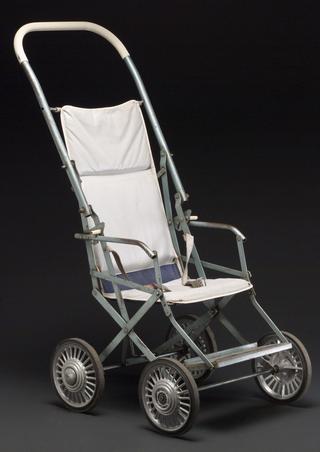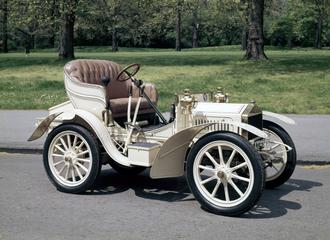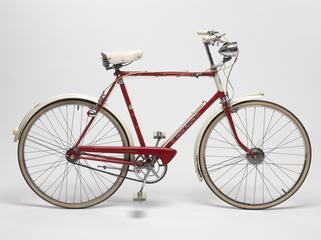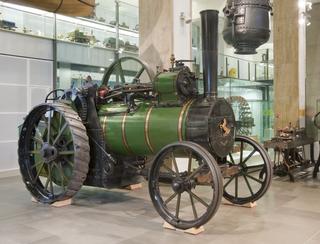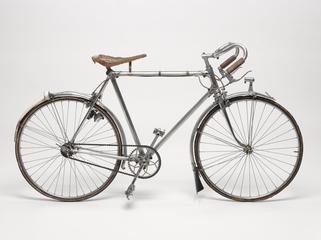Stanley Steam Car with Early Type Pneumatic Tyres.
This Stanley steam car was built in 1899 in Massachusetts, US in 1899 by Francis and Freelan Stanley, the eventual founders of the Stanley Motor Company in 1902.
The car is a four-wheel, two seat vehicle powered by a two-cylinder, double acting steam engine which has 2-½ inch bores and 3-½ inch strokes. This engine could produce around 6 horsepower, and achieve a maximum speed of approximately 15 mph. The engine was fed by a 5-gallon fuel tank and a 15-gallon water tank. Whilst the car could achieve 10 miles per gallon, it also consumed approximately 1 gallon of water per mile, which was very high-water consumption for a steam car. The car has elliptical spring suspension positioned above the front and back axles of the vehicle, and the wheels are covered by pneumatic rubber tires which are inflated by an internal airtube. The drum brakes for the wheels are controlled with a combination of a hand brake and a pedal.
This car went through a significant restoration and rebuilding period between 1984 and 1985 to bring the vehicle to working order. Its original paintwork was red but has since been redone several times throughout the late 20th century. The car is currently painted black and has registration plates which read: FC 153,
More
Whilst petrol engine cars would eventually dominate the 20th century motor industry, during the early years of automobile history, steam cars were also considered a viable and popular design of car. Steam cars were especially popular in the United States where various models were being designed and sold.
Steam cars would begin to decline in popularity as newer designs of petrol engine cars like the mass-producible Ford Model T in 1908 quickly outcompeted all other types of cars in affordability and ease of maintenance.
The Stanley steam car was one of the first models produced by the Stanley Motor Carriage Company in 1899. It is one of the earliest steam cars to be produced in notable numbers, with a few hundred being built between 1898 and 1899.
This Stanley automobile is a light open-topped vehicle with a body design like horse drawn gigs and buggies from the period. A similar model was used by Freelan Stanley (co-inventor of the Stanley steam car) and his wife to climb to the top of the 6288-foot Mount Washington in two hours and ten minutes. No other car had achieved anything like this previously.
- Measurements:
-
overall: 1670 mm x 1530 mm x 2280 mm,
- Materials:
- copper (alloy) , glass , metal (ferrous) , metal plated (unknown) , rubber (unidentified) , textile and wood (unidentified)
- Object Number:
- 1942-65 Pt1
- type:
- car
- Image ©
- The Board of Trustees of the Science Museum
